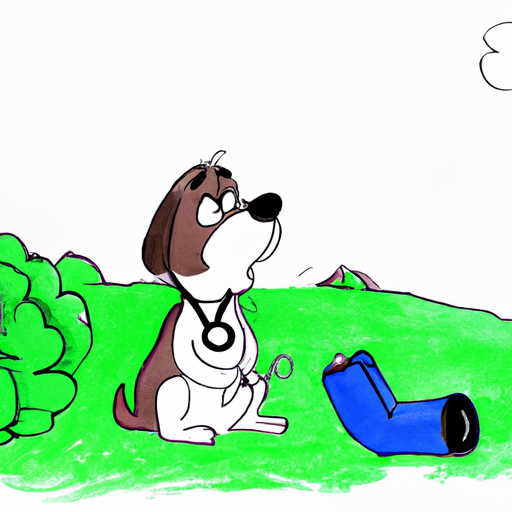As a caregiver for your canine companion, you may have found yourself wondering, “What can I do to help my dog breathe easier?” After all, just like us humans, dogs can face issues with their respiratory system, and these can affect their quality of life significantly. This article will explore five key areas of focus that can help improve your dog’s breathing, including:
- Proper Nutrition
- Regular Exercise
- Regular Vet Checkups
- Awareness of Breed-Specific Risks
- Maintaining a Clean Environment
1. Proper Nutrition
Proper nutrition plays a vital role in keeping your dog healthy and ensuring they breathe easy. A balanced diet rich in essential nutrients can boost your dog’s immunity, making them less susceptible to infections that may affect their respiratory system.
Here are some key aspects to consider:
-
High-quality dog food: Always opt for high-quality dog food that meets the nutritional standards set by the Association of American Feed Control Officials (AAFCO). These products contain the necessary vitamins, minerals, and nutrients your dog needs for optimum health.
-
Watch out for allergens: Some dogs may be allergic to certain food ingredients, which can cause inflammation and difficulty breathing. Common allergens include wheat, dairy, and certain proteins. If you notice your dog having trouble breathing after eating, consult your vet to rule out food allergies.
-
Hydration: Ensure your dog always has access to fresh, clean water. Dehydration can lead to a dry throat and difficulty breathing.
2. Regular Exercise
Regular exercise is crucial to keep your dog’s lungs and heart healthy and promote proper breathing. Here’s what you can do:
-
Walks: Daily walks are a must for all dogs, regardless of their age or breed. The length and intensity of the walk can depend on your dog’s age, breed, and overall health.
-
Playtime: Engage your dog in fun activities that get them moving. This could be a game of fetch, tug-of-war, or even doggy yoga!
-
Swimming: If your dog is comfortable with water, swimming can be a great low-impact exercise. Remember, never force your dog to swim if they’re afraid of water.
3. Regular Vet Checkups
Regular vet checkups can help detect and treat potential health issues before they become serious. Here’s what to keep in mind:
-
Annual Checkups: Schedule an annual checkup for your dog. The vet will listen to your dog’s heart and lungs, check their oral health, and may also suggest some blood tests.
-
Vaccinations: Ensure your dog’s vaccinations are up-to-date. Vaccines protect your dog from various diseases, some of which can affect their respiratory health.
-
Dental Care: Poor dental health can lead to bacteria in the mouth, which can enter the lungs and cause inflammation. Regular dental checkups and cleanings can prevent this.
4. Awareness of Breed-Specific Risks
Certain dog breeds are more prone to respiratory issues due to their physical characteristics. For example, brachycephalic breeds like Bulldogs, Pugs, and Shih Tzus have short noses and compact skulls, which can lead to breathing difficulties.
If you have a breed that’s prone to respiratory issues, work closely with your vet to understand what you can do to help your dog.
5. Maintaining a Clean Environment
Keeping your dog’s environment clean can limit their exposure to allergens and pollutants that may affect their breathing. Here are some tips:
-
Regular Cleaning: Regularly clean your dog’s bedding and toys to remove dust and allergens.
-
Air Quality: Use an air purifier to improve the air quality in your home.
-
Limit Exposure to Smoke: Secondhand smoke can cause respiratory issues in dogs. Avoid smoking around your dog and limit their exposure to smoke-filled environments.
FAQs
Q: Can I use human inhalers or nebulizers for my dog?
A: No, never use human medications without consulting your vet. They may not be safe or effective for your dog.
Q: My dog seems to be panting excessively, should I be worried?
A: While panting is normal in dogs, excessive panting can be a sign of heatstroke, heart problems, or respiratory disorders. If your dog is panting more than usual, consult your vet.
Q: Can dogs get asthma?
A: Yes, dogs can develop a condition similar to human asthma known as canine bronchitis. If your dog is coughing, wheezing, or seems to have difficulty breathing, consult your vet.
Remember, as a caregiver, your dog’s health and wellbeing are in your hands. By following the above steps, you can help ensure they breathe easy and live a happy, healthy life.



